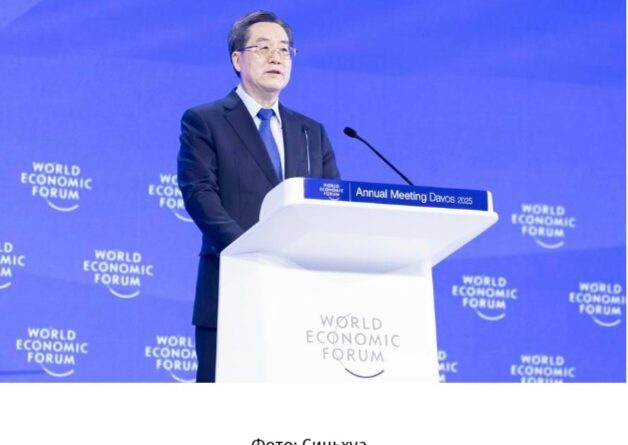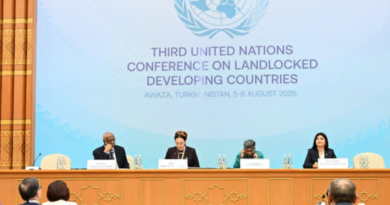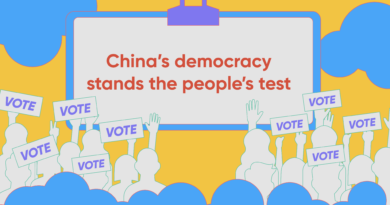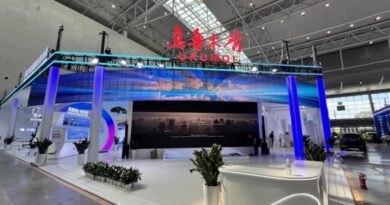Ding Xuexiang on Enabling AI and Other Scientific and Technological Innovation to Better Serve the Well-being of All Humanity
January 21, 2025
On January 21, Ding Xuexiang, member of the Standing Committee of the Political Bureau of the Communist Party of China Central Committee and Vice Premier of the State Council, took a question on how to enable AI and other scientific and technological innovation to better serve the well-being of all humanity after addressing the World Economic Forum Annual Meeting 2025 in Davos.
Vice Premier Ding pointed out that what comes with AI and other emerging technologies is not progressive development, but revolutionary transformation. Thanks to open cooperation, China has made remarkable achievements over recent years in its economic development and scientific and technological progress. Guided by the philosophy that “science knows no border and should benefit all humanity,” China has worked to promote international cooperation on innovation and ensure the fruits of scientific and technological progress are shared by all. China has established cooperative relationships with more than 160 countries and regions on science and technology. In particular, it has stepped up the sharing of scientific and technological achievements and technological applications with Global South countries, with a view to bridging the technology divide and preventing scientific and technological innovation from becoming “a game reserved for rich countries and rich people.”
Vice Premier Ding noted that AI and other emerging technologies can be a powerful driving force for development, but may also turn into a source of risks. China attaches great importance to striking the right balance between development and security, follows the approach of seeking progress while ensuring stability, and strives to keep innovation from going astray. It is like driving a car on the expressway. The driver would not feel safe to step on the gas pedal if he is not sure the brake is functional. China is developing AI mainly for the purpose of driving forward economic transition, realizing Chinese modernization and delivering a better life for the 1.4 billion-plus Chinese people. China will not blindly follow others’ practices or engage in excessive international competition. China has put in place robust regulatory systems, institutions and measures, and is confident of ensuring sound management and utilization of AI technologies.
Vice Premier Ding said that global AI governance is a challenge to the whole world. If countries are left to descend into a disorderly competition, it would turn into a “gray rhino” right in front of us. Over the decades, the U.N. has played an effective role in managing nuclear safety and biosecurity, which offers us valuable experience. It is important to support the U.N. in playing a central role, and formulate strong and effective rules based on joint participation and consultation by all countries, so as to ensure AI and other new technologies will become “Ali Baba’s treasure cave” rather than the “Pandora’s box.”



